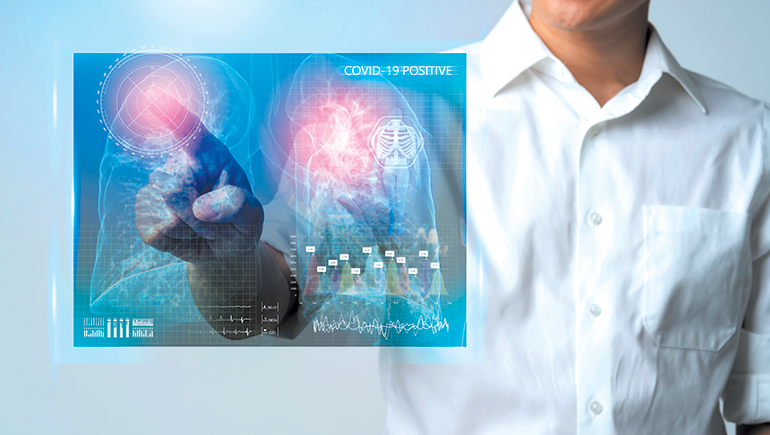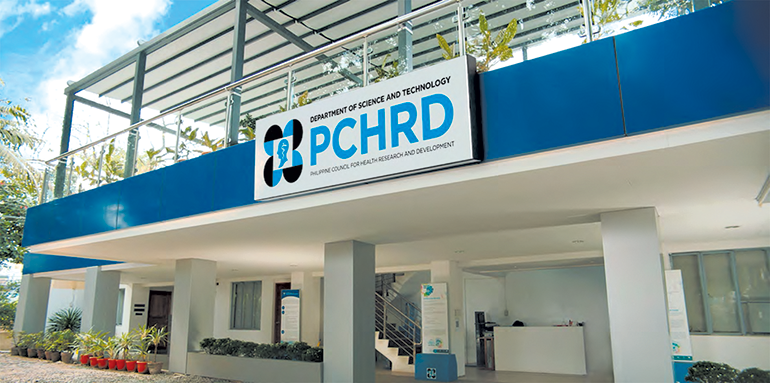Promoting for health technologies powered by artificial intelligence

By Ranz Elifred F. Valdez, Science Research Specialist II, DoST-PCHRD
Artificial intelligence (AI) is steadily reshaping the country’s healthcare landscape, offering transformative solutions across diagnostics, patient triage, and hospital operations. Radiology departments are beginning to adopt AI tools that interpret X-rays and CT scans with remarkable accuracy. Telemedicine platforms now use chat-based systems to assess urgency in patient cases, while hospital administrators rely on predictive models to forecast admissions and streamline records management.
The Department of Science and Technology-Philippine Council for Health Research and Development (DoST-PCHRD), through its Digital and Frontier Technologies for Health Program (DFTH), is steering the country toward intelligent, tech-enabled health systems. By supporting research projects that integrate AI into diagnosis and public health surveillance, the council is helping bridge hospital-based care with community-level health monitoring.
Among the supported projects is the CHERISH project (A Retrospective Study on the Accuracy of AI-Powered Reading of Chest X-Rays in the Diagnosis of COVID-19 Pneumonia in a Tertiary Hospital), which utilizes AI to analyze chest X-rays and detect pneumonia, identifying whether the cause is COVID-19, bacterial, or viral. The model has demonstrated 100% sensitivity and 99% specificity. Through the CHERISH COVID-19 Detection App, radiologists can upload images, receive probability-based assessments, and share results with attending physicians, who then incorporate AI insights into their clinical evaluations.
On the other hand, the HealthPH project (HealthPH: Intelligent Disease Surveillance for Public Health using Social Media) uses AI to analyze social media posts written in Filipino and Cebuano for signs of emerging infectious diseases. This innovative approach provides early warning signals to health authorities, especially in areas with limited laboratory capacity, enabling faster detection and response to outbreaks.

Another initiative is the UTAK AI project (UTAK AI: Clinical Landing and Federated Learning of Medical Imaging AI on Brain Tumors) implemented by the University of the Philippines Manila, in collaboration with Taipei Veterans General Hospital, Taiwan AI Labs, and Philippine General Hospital, which uses convolutional neural networks and deep learning techniques to improve brain tumor detection and diagnosis through Taiwan’s Deep Brain model. Building on earlier work by Taiwanese collaborators, the project is developing a local AI software for federated learning of medical imaging on brain tumors.
Adding a nutrition-focused application, the AINA project (Artificial Intelligence Nutrition Assistant: Development and validation of a deep learning food recognition system for dietary assessment among Filipinos) is developing an automated food recognition and dietary assessment system. Integrated into a mobile app, it can be used by nutrition and public health professionals, researchers, and food industry stakeholders to monitor clients’ dietary intake and quality.
These DoST-PCHRD-supported projects illustrate the breadth of AI’s potential in Philippine healthcare, from imaging-based diagnostics in radiology, neurology, and nutrition science, to surveillance systems for tracking infectious diseases. Telemedicine can also benefit from AI-assisted triage, guiding patients toward appropriate care before reaching a clinic or hospital. In rural communities, AI tools can serve as an initial screening method, reducing delays in treatment. Decision-support software can provide clinicians with relevant data and possible treatment options during consultations, while predictive models help health authorities direct limited resources where they are most needed.

The DoST-PCHRD, as the national coordinating body for health research and development, plays a vital role in advancing AI-powered health innovations. Through funding, technical support, and strategic partnerships, the council is helping build a future-ready healthcare system, one that embraces intelligent technologies while ensuring equitable, safe, and effective care for all Filipinos.
Ranz Elifred F. Valdez is a science research specialist at the Philippine Council for Health Research and Development, a sectoral planning council under the Department of Science and Technology.



